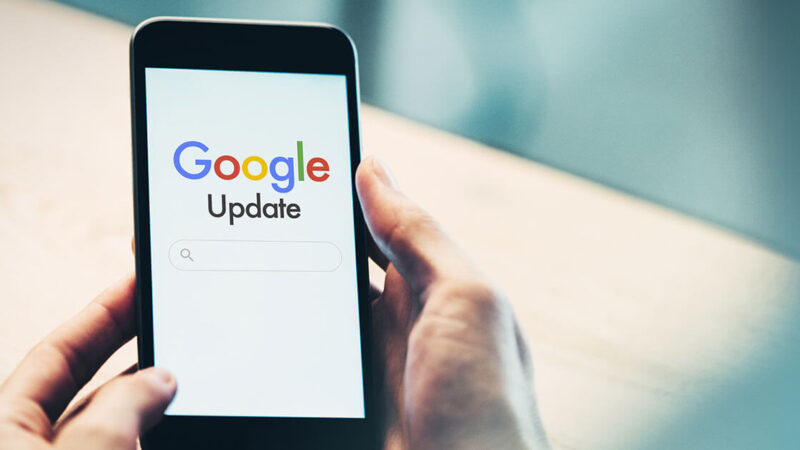Negative Impact of Social Media on Youth

Like all technologies, social media comes with advantages and disadvantages. When it comes to the effects of social media on teenagers, these advantages and disadvantages are especially important.
Positive platforms such as TikTok, Twitter, Instagram, and Snapchat can prove to be lifesavers for teens who are feeling lonely or marginalized, especially LGBTQ teens. Additionally, social media made adolescents feel connected and less alone during the outbreak.
However, the effect of social media on teens is also a major threat to mental wellbeing. Particularly, depression and social media are inextricably connected. In addition, the excessive use of apps can expose teenagers to body image, cyberbullying issues, and technology issues and lead to a lesser time to engage in actual, positive activities. Although most parents think they are aware of the content their child posts on social media, as per the findings of a Pew Research poll, a study of teens revealed that 70% of them hide their online activities from their parents.We will be discussing more about Negative Impact of Social Media on Youth
The Impact of Social Media on Teenagers in the Pandemic
Teens and Social Media are a healthy combination, or is the use of social media affect teens’ wellbeing? What is the reason social media is bad? It’s one of the most controversial issues regarding the negative impact of social media on youth research has shown varying outcomes, including the latest research into the use of social media in the epidemic.
In a report published in 2021 from Common Sense Media on social media’s impact on teens, approximately half of the 1500 young people who were surveyed believed that social media is essential for them to receive advice and support and feel less lonely and be creative, and also to stay in touch with relatives and friends even when disconnecting. Most respondents said using social media helps people feel better when they’re feeling distressed or stressed. In the case of LGBTQ teens, 52 percent of them said that social media makes people feel more relaxed when feeling these emotions.
On the other hand, the study entitled “Coping in COVID-19 The Way Young People used Digital Media to Manage Their Mental Health” also showed a significant link between social media and teenagers experiencing depression. Children with moderate to severe depression were two times as likely to claim they used social media often: One-third of those with depression were reported to use social media regularly compared to just 18 percent of teenagers who didn’t have depression symptoms. Additionally, the more severe their symptoms and the more stressed and lonely they felt using social media. Social media is not helping teenagers who already feel depressed and can increase their anxiety and depression.
Studies in Social Media and Teen Depression The Reasons Social Media Can Be Bad for Mental Health
Do you think social media is part of the reason why depression among teens has dramatically increased in the past decade? Research studies of US teens show that depression and suicide rates increased significantly between the years 2010 and 2015. and particularly for females. Some researchers suggest that the growth in social media usage and the use of screens in general between those years could be the reason for these shifts. The teenagers polled who were more active using social media were more likely to be diagnosed with mental health concerns. People who spent more time with non-connected activities, like social interactions in person or sports, exercising homework, and printed media, were less likely to discuss these issues.
In the last ten years, the theory has been confirmed by many studies that have linked teens using social media with an increase in depression in teens. The studies have shown an increase in teens’ usage of social networks directly relates to the quality of their health. For instance, in the study from the year 2018, teenagers aged 14 to 17 who were on social media for seven hours a day were nearly twice more likely to be admitted to a depression clinic, seen by psychiatrists, or taken medication for a mental or behavioral problem in the past year. The study was conducted compared to people who used screens just an hour per day.
Many experts think that the continuous overload of social networks changes the brain’s nervous system to”fight-or-flight” mode. In turn, this causes disorders like ADHD and depression in teens, oppositional defiant disorders, and anxiety among teens more severe. But, some studies on the relationship between the link between depression and social media indicate that the causality runs oppositely. I.e., when teens suffer from depression, they are more likely to check their social media accounts frequently. In an investigation that included 600 teenagers, researchers discovered that social media users did not correlate with depression symptoms. Still, more depressive symptoms were linked to greater use of social media over time.
Additional Psychological Impacts on the Social Media on Young People
A recent study conducted by researchers from University College London tracked three years of use of social media by 13,000 teenagers beginning when they turned 13. Teens also reported their experiences with social media and their mood and overall wellbeing.
After collating the data, researchers concluded that three key elements drive the influence of social media on teens:
- Insufficient sleep–teens kept up late to browse Facebook and Twitter feeds
- Exposure to cyberbullying–having harmful, false, or private content about them posted on social media
- Inactivity–scrolling Facebook and other social networks on phones and other devices meant that teens were seated for longer durations of time and had less time to exercise. In the end, they could not benefit from the positive impact exercise has on mental wellbeing.
Based on the research presented in Lancet 27, percent of teens who utilized social media reported high levels of psychological stress. For teens who utilized social media less often, only 17 percent reported psychologically high stress.
The Effects of the Social Media on the Youth’s Social Comparison
One of the ways that social media can affect teens’ psychological health can be through social comparisons, or what is known as media psychology Don Grant, Ph.D., Newport Director of Outpatient Services calls “compare and despair.” Teenagers on social media tend to spend a lot of their time watching the lives and posts that their friends have. It can result in endless comparisons that could harm self-esteem and appearance, exacerbating depression and anxiety in teens.
Like other types of social interaction, teens experience lower self-esteem and self-evaluation when they look at their peers on social media websites. This is, for example, checking out profiles where people post photos of their loved ones, social occasions, or achievements. -looking at profiles of peers with fewer friends and achievements. According to a Pew Research Center report on the negative impact of social media on youth , 26,26% of teens feel that these sites cause them to feel less confident in their lives.
The article reads, “Teen mental health and social comparison theory.”
The negative psychological effects of Social Media on Teenage Body Image
Body image is a major aspect in which teenage social competition can trigger negative feelings. When teens compare themselves to edited and filtered photos of their peers and famous people, they frequently feel like they are unworthy. This may lead to less self-esteem and a negative image. Additionally, Facebook use has also been associated with the chance of developing anxiety disorders.
According to a poll conducted by Common Sense Media:
- 35 percent of teens who use social media are concerned about posting photos that aren’t attractive
- 27 percent of people are anxious about their appearance when they upload photos
- Twenty-two percent of people feel embarrassed about their image when no one comments on or “likes” their pictures.
Social Media and its effects on Teens’ Health Risk Or Healthy Motivation?
In addition to offering ways to seek assistance and help, Social media also offers platforms for teens to support each other when they engage in unsafe and risky behavior. Thus, teenagers with eating disorders or self-harming can meet other teens to discuss their destructive habits. Excessive eating calories, fasting, or excessive exercise are welcomed and even recommended on these forums. This means that teens might learn to disguise or increase the intensity of their behavior which puts them at risk.
On the other hand, a social network can help teens develop healthy behaviors. So, watching peers eat healthy meals, doing something imaginative, or spending time in the natural world can inspire others to follow suit. Social media can provide positive peer pressure, encouraging teens to experiment with new things, pursue their passions, and be vocal about important issues. Teens can also discover positively-minded roles models on the internet. Thus, the effects of social media for teens may lead to greater unplugged time and increased self-care habits.
The impact of social Media on Identity Development
The influence of social media on youth can be seen as a crucial aspect of development in adolescence which is the development of one’s own unique identity. Thus, social media provide an opportunity for teenagers to test their skills concerning their identity development. These include self-presentation and self-disclosure–sharing their opinions, beliefs, and preferences.
In a study that followed 219 first-year students from an institution of higher education, researchers discovered that teens who shared their views via social media reported higher happiness. Another study showed that teens who were more active on social media had higher “self-concept clarity”–a more clear idea of who they are. This awareness of self helps improve mental health.
A 2020 research paper about teenagers and the internet concluded that social media provides teens with the “autonomy to explore and play with their identities within an environment of their own and where they are in the ability to control what, the way they share information and who they share their information with,” it had the possibility of being particularly significant during COVID-19 where real-world opportunities for identity development were restricted.
Social Media, Friendships as well as Social Media
Social skills and friendship are other areas where the influence of social media on young people is positive and negative. According to the Pew Research Center’s study, 80 percent of the teens who took part in the study claimed that social media helps people feel closer to what’s happening in the lives of their peers. Furthermore, two-thirds of teens reported that these sites make them feel like they have people to help them through difficult times.
As the disease spread in the course of the epidemic, social media became among the top and most frequently–and at times the only means through which teens could interact with other peers. There’s a distinct difference between teenagers having social media-based friends and. their real-life friends: A Pew survey revealed that 60% of teens say they have time with their friends frequently or on a nearly every day basis, however only 24 percent of them spent time with their friends usually are in-person (pre-COVID). These figures show that online relationships may hurt IRL friendships.
You are additionally, cyberbullying increased exponentially during the epidemic. A report for 2020 from the non-profit organization L1ght observed a 70 percent increase in hateful speech among teenagers and children across various communication channels, including social media and popular chat rooms. The more time you spend online gives greater access to both positive and negative aspects of the internet, which further increases the negative impact of social media on youth.
The addictive quality of Social Media for Teens
Researchers have discovered that teens’ users of social media can create an elicitation pattern that is similar to the patterns that are that is created by other addictive behavior. Therefore, the brain responds to social media in the same way that it reacts to different “rewards” by releasing dopamine. Dopamine is released when a teenager shares something online, and they are rewarded with shares, likes, and positive remarks from their friends.
Treatment for Addiction to Social Media by Teens and its Root Reasons
Research has shown that teens who use social media excessively are often associated with deeper problems, like depression and anxiety, chronic stress, and low self-esteem. Thus treatment of the students at Newport Academy includes addressing these main causes and removing them from social media and phones.
Within a couple of days, teenagers begin to feel more at ease in their IRL surroundings. In our sessions, they make strong bonds with their peers and explore their personal lives by writing and meditation, taking time outdoors, and participating in innovative offline activities.
Newport’s team of clinical specialists specializes in helping teenagers gain the abilities and self-knowledge required to recover from maladaptive behavior rooted in the root causes and negative effects associated with teens or social media.




